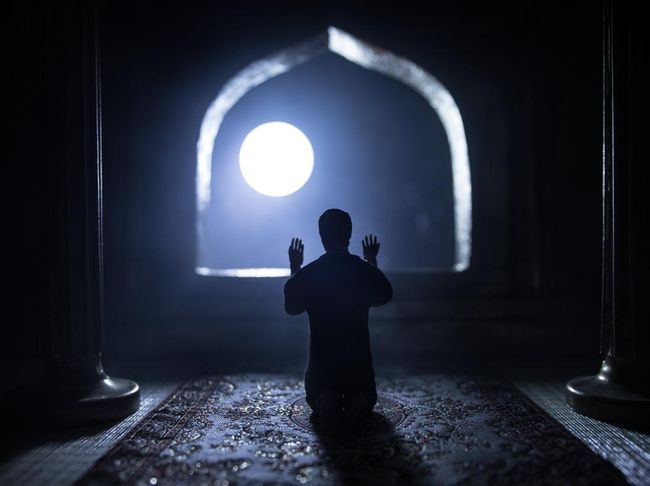Complete Prayer After Tahajjud Prayer in Latin and Procedures

Introduction to Tahajjud Prayer
Tahajjud prayer is one of the most rewarding yet often neglected voluntary prayers in Islam. It’s a special act of worship that brings the worshipper closer to Allah, offering spiritual peace and an opportunity for reflection in the stillness of the night. But did you know there’s a beautiful prayer that can be recited after Tahajjud in Latin? In this article, we’ll dive into the procedures for Tahajjud, the prayers after it, and how you can enhance your spiritual journey.
What is Tahajjud?
Tahajjud is a voluntary (non-obligatory) prayer performed during the last part of the night, after waking from sleep. It holds immense rewards and is a practice highly encouraged for Muslims seeking to strengthen their faith and connection with Allah.
The Importance of Tahajjud in Islam
Why is Tahajjud so special? The Prophet Muhammad (peace be upon him) emphasized its importance, mentioning that it brings one closer to Allah and opens the doors of mercy and forgiveness. The act itself is a demonstration of devotion since it requires effort and sacrifice—after all, waking up from deep sleep to worship Allah is no easy task!
Timing and Occasions of Tahajjud
The best time to perform Tahajjud is during the last third of the night, before Fajr (dawn) prayer. This time is regarded as sacred, as Allah descends to the lowest heaven asking, “Who is calling upon Me so I may answer him?”
Understanding the Concept of Prayer After Tahajjud
Is There a Specific Prayer After Tahajjud?
While there isn’t a mandatory or specific prayer to be said after Tahajjud, Muslims often take this time to make personal supplications (duas), seeking forgiveness, guidance, and blessings. The night is a powerful time for dua, as it’s believed that Allah is more inclined to answer prayers made during this hour.
The Spiritual Significance of Praying After Tahajjud
Praying after Tahajjud provides an intimate moment with Allah. It’s a chance to pour out your heart, to reflect on your life, and to ask for whatever you need. The peace of the night makes this time feel like a personal conversation with your Creator, free from distractions.
The Procedure for Tahajjud Prayer
Steps to Perform Tahajjud Prayer
The process of performing Tahajjud is relatively simple, but it requires sincere intention and devotion. Here’s a step-by-step guide:
- Niyyah (Intention): As with any act of worship, start by making the niyyah (intention) to perform Tahajjud. This can be done silently in your heart.
- Number of Rak’ahs in Tahajjud: You can pray anywhere from two to eight Rak’ahs (units of prayer). There is no fixed limit, but the Prophet (PBUH) often prayed eight Rak’ahs followed by Witr.
- Recitations During Tahajjud: In each Rak’ah, after reciting Surah Al-Fatiha, you can recite any Surah or verses from the Qur’an. It’s recommended to recite longer verses during Tahajjud to increase reflection.
Complete Prayer After Tahajjud in Latin
Now, let’s focus on the prayer (dua) after Tahajjud. Below is a complete prayer you can recite in Latin, along with its meanings and significance.
Overview of the Post-Tahajjud Prayer
Post-Tahajjud prayer is essentially a personal supplication to Allah, asking for His mercy, forgiveness, and blessings. The following are commonly recited duas in Latin, though you may also pray in your native language or in Arabic.
Recommended Dua in Latin
Reciting a dua in Latin may seem unconventional, but for those who understand the language or feel a deeper connection with it, it’s a beautiful way to connect with Allah. Below are three commonly recited duas after Tahajjud:
- Dua 1: Seeking Forgiveness (Istighfar)
“Deus meus, remitte mihi peccata mea et miserere mei.”
(Translation: “My Lord, forgive my sins and have mercy on me.”) - Dua 2: Asking for Guidance
“Deus meus, dirige me in rectam viam et da mihi sapientiam.”
(Translation: “My Lord, guide me on the straight path and grant me wisdom.”) - Dua 3: Prayer for Sustenance and Blessings
“Deus meus, dona mihi copiam benedictionum tuarum et sustine me.”
(Translation: “My Lord, bestow upon me Your blessings and provide for me.”)
These duas are heartfelt requests to Allah, covering all aspects of life—spiritual, personal, and material.
Additional Recommended Acts After Tahajjud
Recitation of Qur’an After Tahajjud
After performing the Tahajjud prayer and making supplications, it’s highly recommended to spend some time reciting or reflecting upon the Qur’an. The quiet of the night allows for deeper reflection, making it a perfect time to absorb the words of Allah.
Engaging in Dhikr (Remembrance of Allah)
Another beautiful act to perform after Tahajjud is Dhikr, the remembrance of Allah. Reciting phrases such as “SubhanAllah” (Glory be to Allah), “Alhamdulillah” (All praise is due to Allah), and “Allahu Akbar” (Allah is the Greatest) can help you maintain a state of mindfulness and gratitude towards Allah.
Conclusion
Performing the Tahajjud prayer is a deeply rewarding spiritual practice, and following it up with heartfelt prayers (dua) in Latin or any other language adds a personal touch to your worship. The peace, quiet, and solitude of the night create the perfect environment for sincere supplications, recitation of the Qur’an, and remembrance of Allah. Whether you’re seeking forgiveness, guidance, or blessings, the time after Tahajjud is an opportunity to strengthen your bond with Allah and draw closer to Him.



